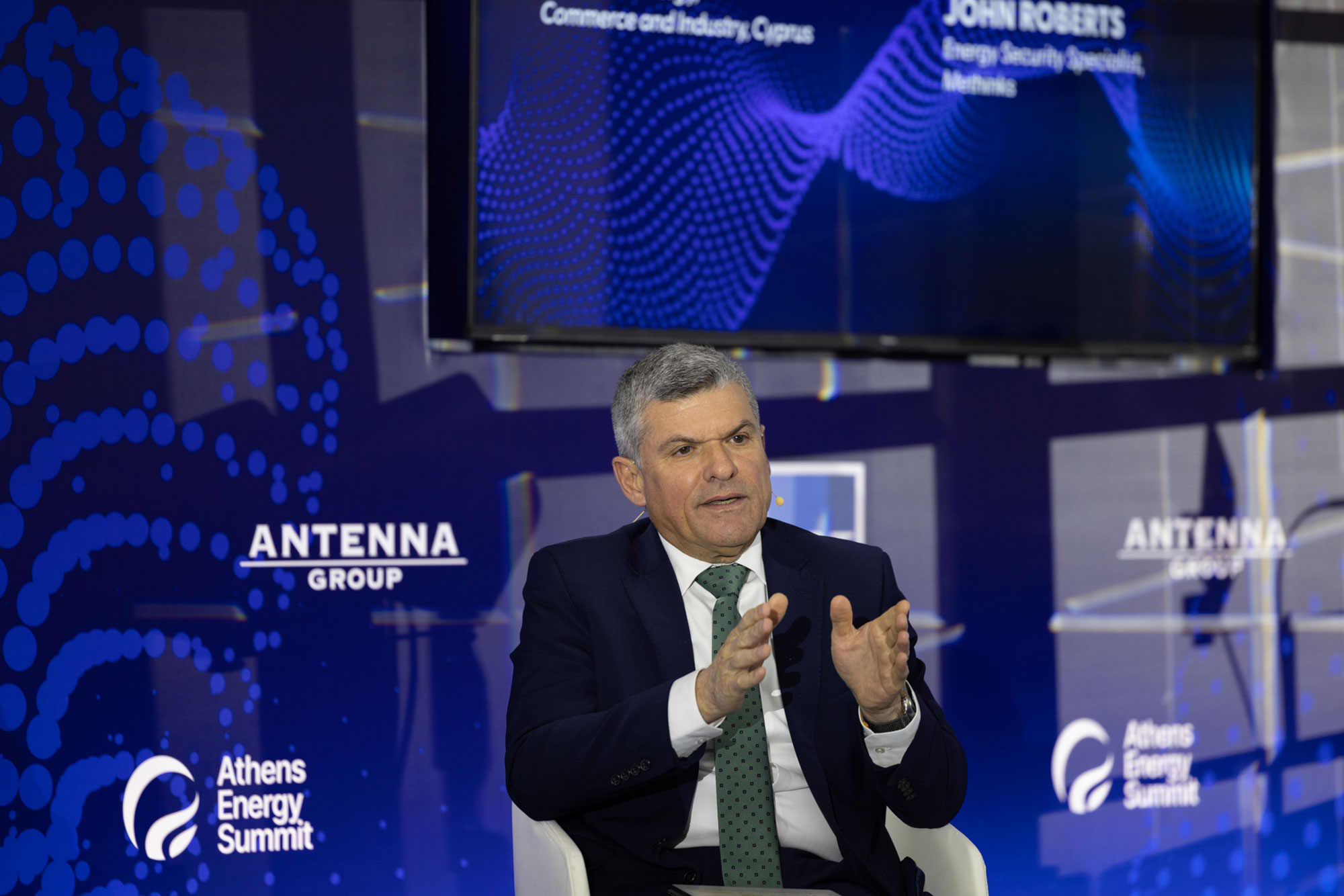Matters became heated between Energy Minister George Papanastasiou and the electricity authority’s scientific staff’s trade union Sepaik leader Marios Pappoutis at the union’s annual general meeting on Saturday.
Pappoutis had laid the blame for the slow pace of upgrades at the Dhekelia power plant at Papanastasiou’s feet, while Papanastasiou pointed his finger at the electricity authority (EAC).
“The ministry is not completing its own obligations towards the implementation of the project, resulting in a project which has already been devised not being completed, leading us, for the umpteenth time, to an impasse,” Pappoutis said.
He asked whether the delays, and rumours of increased costs for the upgrades, had been made “to pave the way for private solutions”, and stressed that finding a new electricity production site “is and remains of utmost national importance”.
He also said adequacy studies carried out by both the energy ministry and by the transmission system operator (TSO) are “based on illegal or non-existent infrastructure”, and called for a review of Cyprus’ infrastructure “based on the current reality”, and not on the prospect of the construction of an interconnector cable to Crete.
Additionally, he spoke of “targeted attacks against the EAC”, and said that in some circles, people seek “the deconstruction and dissolution” of it.
“As EAC employees, we categorically declare that we will not allow this and that we will take all necessary actions to preserve it,” he said.
Papanastasiou responded in kind, saying it is “amazing to hear my friend Marios say what the state should do, and not what he himself should do”.
He said the government has “actively supported” the EAC, including allocating €114 million from funds available to Cyprus through the European Commission’s just transition fund for the upgrade and automation of Cyprus’ electricity network.
He also pointed out the government’s €35m grant for the installation of smart meters, as well as funding for new solar farms, the staffing of “critical sectors of the EAC”, and support for upgrades at the Dhekelia power station.
On the matter of Dhekelia, he said he has “some questions for the EAC as to why the project is not progressing”.
“We gave the green light. Proceed with the upgrade. From the day we gave the green light, I have been asking the EAC to complete it. And then, that’s the state’s fault? What do you want me to do? Go to Dhekelia with a screw and do the work myself?”
He added that he expects the EAC to present him decisions it had made through the tender for the project to upgrade the power stations, and that if none of the bids meet the criteria, they must “give me alternative solutions”.
He then added, “it cannot be the state’s fault every time someone fails”.
He said his position was that there should be a “unified effort” involving the government, the EAC, unions, and staff, adding that this should be “a common entity with a common purpose”.
“By contrast, the speech made by [Pappoutis] repeatedly separated the role of the union, presenting it as an independent body from the state, the EAC, and the staff. This perception is a remnant of outdated mindsets which must be changed, as if the logic of separation continues to exist, we will always move in different directions,” he said.
He then added that Sepaik “must also turn to itself”, adding that “it cannot constantly blame the state”.
“It is easy to say that others are to blame, but at some point we must ask ourselves what we can do to contribute to the sustainability of the organisation, to securing jobs, and to reducing production costs, so that people can enjoy lower electricity costs,” he said.
The government gave the EAC the go-ahead to upgrade Dhekelia with two new flexible generators in March.
Local residents had staged a protest at the power station the previous month, demanding it be upgraded with “less polluting machinery” to be “less harmful” to both the environment and human health.
Antonis Photi, the mukhtar of nearby Ormidia, declared that the continued operation of the power station in its current form is “unacceptable”, describing its current machinery as “ancient”.
“It pollutes the oxygen we breathe and our environment, resulting in health problems for the people of the wider area,” he said.
The European Commission had initially demanded that Cyprus close the power station, given that it does not meet the EU’s emissions targets, but Cypriot government promises to modernise it to mitigate those emissions saw the deadline extended twice.






Click here to change your cookie preferences